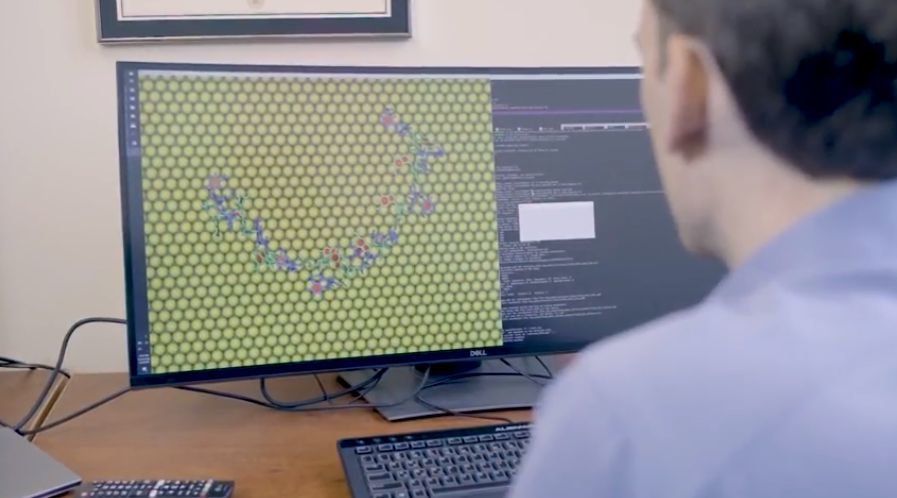Researchers are paving the way to total reliance on renewable energy as they study both large- and small-scale ways to replace fossil fuels. One promising avenue is converting simple chemicals into valuable ones using renewable electricity, including processes such as carbon dioxide reduction or water splitting. But to scale these processes up for widespread use, we need to discover new electrocatalysts—substances that increase the rate of an electrochemical reaction that occurs on an electrode surface. To do so, researchers at Carnegie Mellon University are looking to new methods to accelerate the discovery process: machine learning.
Zack Ulissi, an assistant professor of chemical engineering (ChemE), and his group are using machine learning to guide electrocatalyst discovery. By hand, researchers spend hours doing routine calculations on materials that may not end up working. Ulissi’s team has created a system that automates these routine calculations, explores a large search space, and suggests new alloys that have promising properties for electrocatalysis.
“This allows us to spend our time asking science questions, like, ‘How do you predict the properties of something,’ ‘What is the thermodynamic model,’ ‘What is the model of the system,’ or ‘How do you represent the system?’” said Ulissi.
